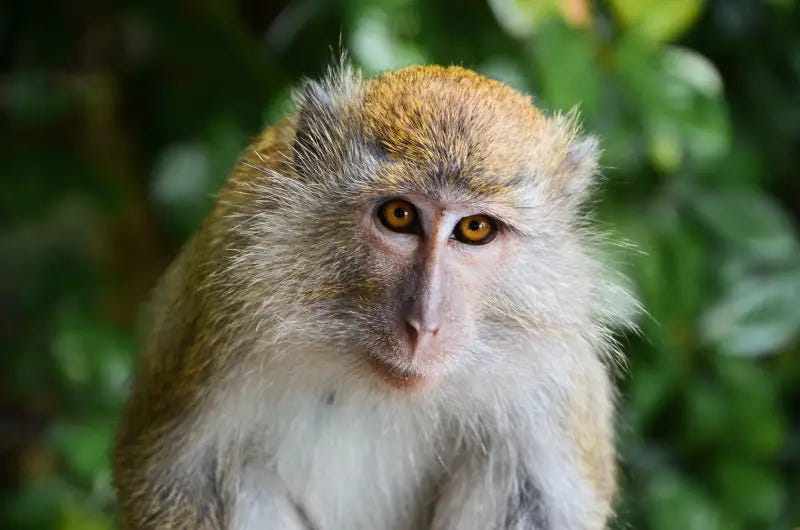Bird species in peril at the world's wildlife summit
Some 61 per cent of bird species are in population decline according to the latest review by the IUCN
Delegates from more than 160 countries and 1,400 organisations have gathered in Abu Dhabi for the IUCN World Conservation Congress.
The IUCN – the International Union for Conservation and Nature – is perhaps best-known for its “Red List”, which tracks the conservation status of animal species. For example, last week it ruled that the long-tailed macaque will remain listed as “endangered” despite attempts from pharmaceutical lobbyists to overturn its 2022 categorisation.
A new assessment of the Red List, unveiled to open the summit, showed that 61 per cent of bird species are now in decline, up from 44 per cent just under a decade ago. Several species of arctic seal were also flagged as of concern.
The Congress is also an opportunity for discussion of IUCN policy, motions and species assessments. For example, last week a “landmark” resolution was adopted recognising environmental crime as a serious threat to biodiversity and human rights. A motion was also passed that calls for guidelines to help countries manage the commercial trade of wild animals kept as pets.
Ecuador: A highly-criticised Chinese fleet which has been fishing in the area around the Galapagos Islands for months has left the area, Ecuador’s navy said. The fleet has moved on to Peru. The Chinese distant water fishing fleet is the largest in the world and has been criticised by environmentalists and human rights advocates, as well as nations who say it is depleting fish stocks in their waters. (Reuters)
UK: Nearly 2,000 wild animals were seized in co-ordinated raids across the west of England. More than 1,000 geckos, hundreds of tortoises and pythons were seized from a farm in Shropshire, while a further 73 tortoises were found at a cleaning business. Conditions were said to be too cold for reptiles with heat lamps not used. (Shropshire Star)
Malaysia: Two men have been jailed for six months in Malaysia’s first rhino horn conviction. They were arrested after a “dramatic chase” in 2021 after they were found with 50 whole horns in their truck which had been declared as lobster. The case shows the uneven treatment of wildlife crimes. In 2021 a man in Vietnam was jailed for 14 years over horn trafficking, which a South African was jailed in Singapore for two years for trafficking 20 pieces. (TRAFFIC)
Spain: Spanish police raided an illegal breeding facility and found the remains of 250 animals, and rescued 171 live animals. Many of the live animals were endangered including various exotic birds according to reports. The facility was also used for the breeding of chinchillas, dogs and dwarf horses. (UPI)
Nepal: A notorious rhino poacher is one of at least 15 who have escaped from prison in Nepal. The suspect had previously been a fugitive for more than a decade, and is now loose again. Conservationists fear the escapees could once again target rhinos. (Kathmandu Post)
Australia: Nineteen Indonesians have pleaded guilty to illegal fishing in Australian waters. Australian authorities apprehended several Indonesian vessels off the northern coast between September 7 and 11 this year. More than 1,000kg of sea cucumber were seized alongside tonnes of salt used to preserve caught fish. (Baird Maritime)
Ireland: Just eight convictions for wildlife crimes were secured in Ireland in 2024. This is despite 30 cases being referred for prosecution and likely thousands of allegations made; some 1,200 were made in the first six months of this year. These included reports for the burning of land, using illegal snares and the destruction of hedgerow. The level of enforcement has been described as “deeply worrying”. (Irish Times)
Argentina: Turtles, iguanas and caimans were found confined in small enclosures and lacking basic hygiene conditions at a veterinary centre in northern Argentina. Some 128 wild animals, 14 of which had died, were found during the raid. Local organisations warned that the illegal wildlife trade is damaging the area’s biodiversity. (Noticias Ambientales)
UK: A man in Wales has been convicted of animal cruelty for hurting badgers, a nationally protected species, and allowing his dog to be used in illegal fights. He had videoed himself stabbing a badger after it had been harmed by dogs. The man was jailed for 16 weeks, with the judge suggesting she would have liked to have given him a longer sentence, but guidelines did not allow. (Wales Online)
India: Two tiger cubs orphaned by poaching last week have been rescued by park rangers in India. Rangers launched the search after finding their mother had been killed by poachers. Officials said the cubs were likely saved from starvation and will be raised in a special facility before being released back into the wild. A third cub is still missing. (Free Press Journal)
India: A raid on an abandoned timber factory resulted in the discovery of 800 dead bats stuffed in sacks. Eleven people were arrested on suspicion of poaching. Officers said they were acting on intelligence about a “long-running bat smuggling ring linked to jungle mafias”. Bats are legally protected in India. (Pragativadi)
Thank you so much for reading Wild Crime. This is a fully reader-supported publication with no outside funding. Paid subscriptions make it possible for us to dig deeper and pursue investigations that take time and resources. But even if you’re reading for free, you’re helping to keep this work alive, and I’m grateful for that.
If you’d like to support Wild Crime further, consider becoming a paid subscriber or sharing this newsletter with someone who might find it interesting. Every bit of support makes a real difference.


